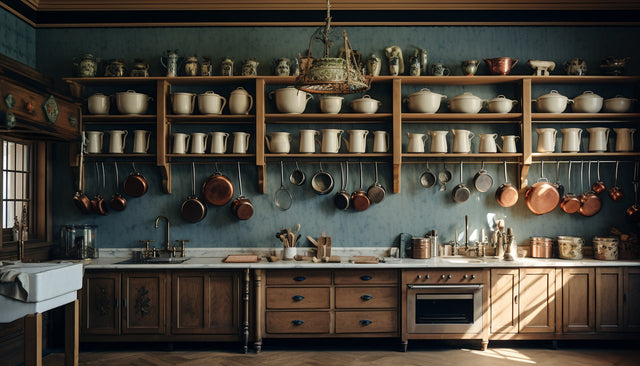
Non-Toxic Kitchen Swaps: Prep Your Beef the Right Way
If you're cooking high-quality beef sourced directly from your local farmer, it only makes sense to prep it with the same level of care. At Herd 77, we believe great beef starts at the source—but it doesn’t end there. How you handle, cook, and store your food matters just as much. Many common kitchen tools and cookware are made with chemicals that can leach into your food—especially at high heat.
Here are some simple, non-toxic kitchen swaps that make it easy to upgrade your cooking game—and protect your health in the process:
1. Swap Nonstick Pans for Cast Iron or Stainless Steel
Most nonstick pans are coated with chemicals like PTFE and PFOA, which can break down over time—especially when cooking at high temperatures, like when searing a steak. Cast iron and stainless steel pans are safe, durable, and perfect for cooking beef.
➡ Pro Tip: A well-seasoned cast iron skillet can even add extra flavor to your steaks and burgers.
-
Our Favorite Cast Iron Pans:
2. Ditch Plastic Cutting Boards for Wood or Bamboo
Plastic cutting boards can develop deep grooves where bacteria hide, and some may contain questionable chemicals like BPA. Wood or bamboo boards are naturally antimicrobial and much gentler on your knives.
➡ Tip: Use a separate board for raw meat to avoid cross-contamination.
- Our Favorite cutting Boards:
3. Switch from Plastic Utensils to Stainless Steel or Wood
High heat and plastic don’t mix. Over time, plastic utensils can melt or leach chemicals into your food. Instead, opt for stainless steel, silicone (food-grade), or wood utensils that are safe to use with hot pans.
➡ Bonus: They also last longer and look beautiful in your kitchen!
- Our Favorite utensils:
4. Choose Glass for Food Storage Instead of Plastic
When storing leftovers, skip the plastic containers and go for glass. Plastics can leach chemicals into food—especially if you’re storing hot items. Glass containers are oven-safe, microwave-safe, and don’t hold odors or stains.
➡ Tip: Mason jars also make great freezer-safe storage for broths and soups.
- Our Favorite Tupperware:
5. Use Natural Cleaning Products on Kitchen Surfaces
If you’re cleaning your kitchen with harsh chemicals, they could end up on your food prep surfaces. Switch to simple, non-toxic cleaners like vinegar, baking soda, and castile soap to keep your kitchen safe and fresh.
➡ Bonus: A few drops of essential oils like lemon or lavender can add a nice scent.
Why It Matters:
When you invest in premium, farm-raised beef like ours, every step of the process should honor that quality—from pasture to plate. These easy kitchen swaps help you cook with confidence, knowing your tools are just as clean and safe as the beef you're serving.
Ready to cook?
Browse our family raised beef cuts here and get inspired to create meals that taste as good as they make you feel.
*Herd 77 earns a small commission from purchases through our amazon links*


